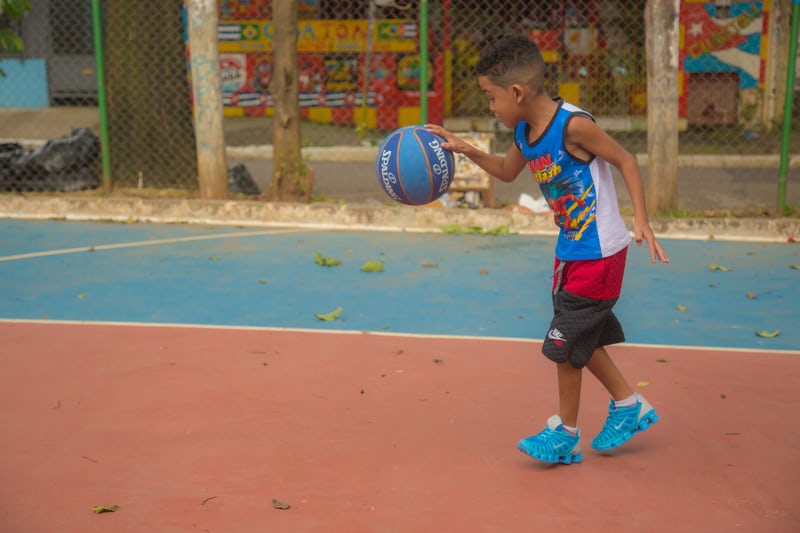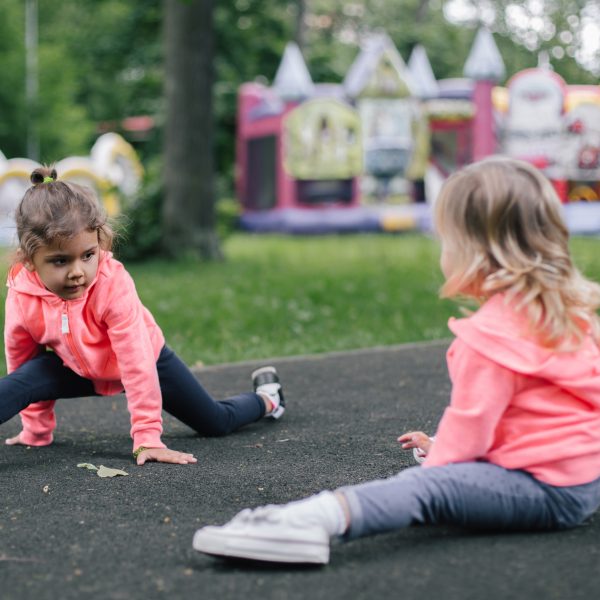UC researchers discover ‘elusive’ solution to increase physical activity in early childhood

Researchers at the University of Canberra Research Institute for Sports and Exercise who have been exploring how the implementation of physical literacy programs in early childhood education and care (ECEC) centres have revealed how peer coaches working in collaboration with educators may be the previously ‘elusive’ solution to increasing physical activity in early childhood.
According to the research, which was conducted in partnership with the Australian College of Physical Literacy (ACPL) and was recently published in the International Journal of Behavioral Nutrition and Physical Activity, three and four year olds at ECEC centres participating in the Active Early Learning (AEL) trial increased their physical activity levels considerably.
Lead author Dr Rohan Telford, a Senior Research Fellow at the University of Canberra Research Institute for Sport and Exercise (UCRISE) said, “There have been many attempts to increase physical activity in early childhood settings. This is the first time we are seeing such a significant and meaningful increase, in physical activity in the preschool group, in published literature.”
Research findings confirm significant increases in daily physical activity during AEL trial
A key finding of the research was that children participating in the AEL trial saw an increase in daily total physical activity (PA) by 28 minutes, and moderate to vigorous physical activity (MVPA) by 16 minutes compared to those that were not participating in the trial.
When compared to the World Health Organisation’s guideline recommendations of PA of 180 minutes per day and MVPA of 60 min/d in today the results were impressive indicating that the peer-coaching approach made a substantial contribution towards children’s daily physical activity requirements.
“These findings surpassed our expectations and put the children in the study at an activity level well above the international recommended levels for this age group,” Dr Telford said.
Peer coaches working with ECEC educators key to improving physical activity
The AEL program, which is customised for each service and is delivered using a peer facilitated coaching model, helps educators integrate physical activity into their daily routines and existing curriculums.
“It may sound simple, but this approach is very different to what is happening now in most schools and early childhood education centres,” UCRISE’s Professor Dick Telford said.
Over the course of the trial period each service was allocated an AEL coach who visited the centre on a weekly basis to provide support, planning and resources, demonstrations and motivation to educators implementing the program.
Professor Telford believes that the study’s personal approach, which sees the coaches building relationships with educators to emphasise the importance of physical literacy, rather than taking an instructional, top-down approach, has been an important factor in its effectiveness.
Key partners ACPL excited about implications of report findings and journal review
The Australian College of Physical Literacy (ACPL) who partnered with UCRISE to conduct the study are excited about the results and its inclusion in the International Journal of Behavioral Nutrition and Physical Activity.
Andrew Smith, CEO of ACPL said, “Partnering with Professor Telford and his team at UCRISE has been a terrific experience for us.”
“The AEL study findings that physical activity levels can be greatly improved by making achievable adjustments to the daily routine in our early learning centres is very exciting and to have the work finally recognised in a prestigious journal like the International Journal of Behavioral Nutrition and Physical Activity is amazing.”
To learn more about ACPL and the AEL curriculum please contact Andrew Smith at [email protected].
Popular

Policy
Practice
Provider
Quality
Research
Workforce
Beyond the headlines: celebrating educators and the power of positive relationships in early learning
2025-07-07 10:00:24
by Fiona Alston

Workforce
Policy
Quality
Practice
Provider
Research
ECEC must change now, our children can’t wait for another inquiry
2025-07-02 07:47:14
by Fiona Alston

Workforce
Quality
Practice
Provider
Research
Beyond the finish line: Championing child protection one marathon at a time
2025-07-08 09:15:32
by Fiona Alston













